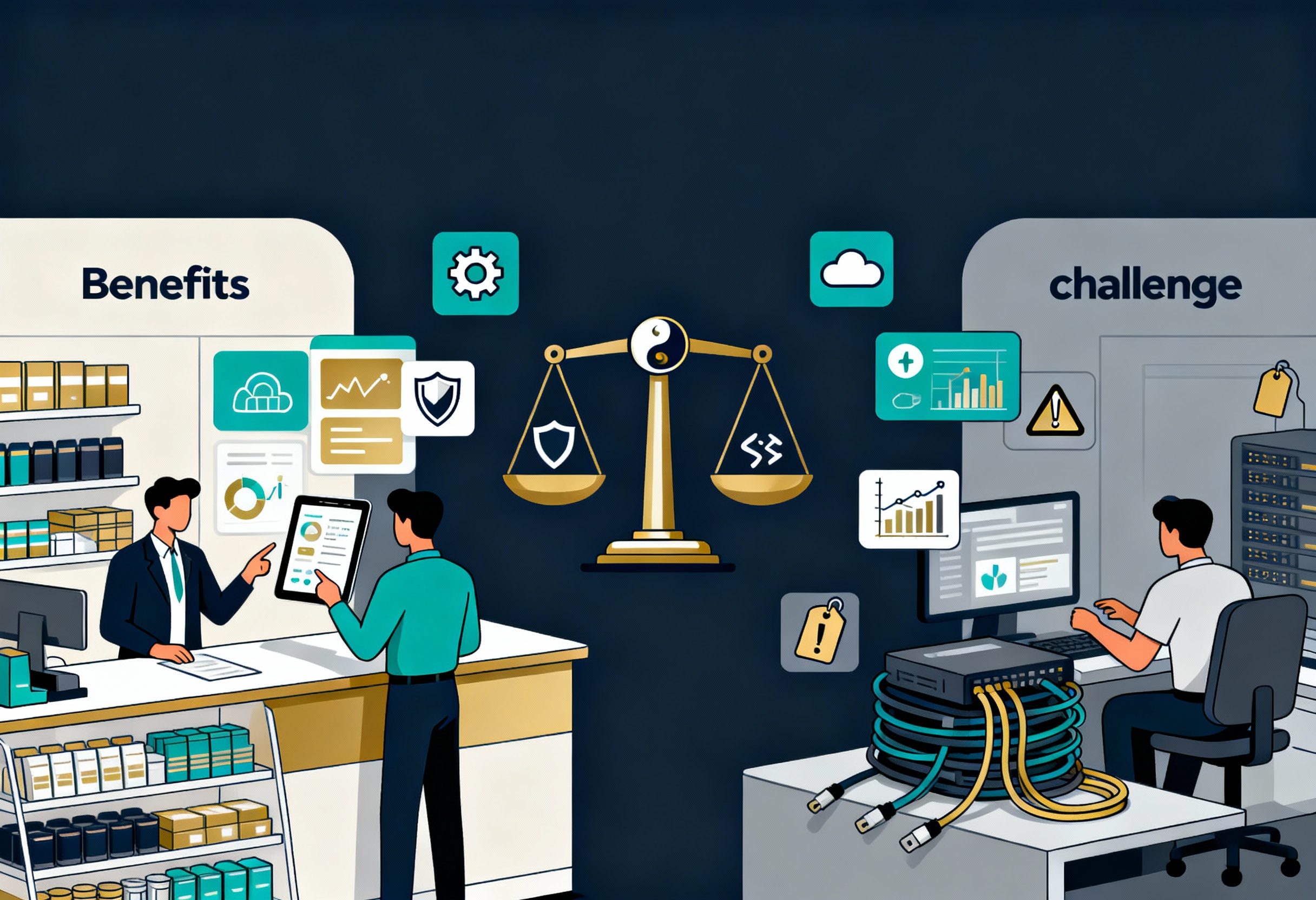When it comes to selecting an eCommerce platform, businesses have a variety of options to choose from. BigCommerce is one of the industry’s most well-established platforms, powering over 150,399 websites across 65 countries. Known for its ease of use, built-in features, and scalability, BigCommerce has been a top choice for many online retailers.
On the other hand, Commercetools is an emerging headless commerce platform designed for brands that require greater flexibility and customization. While it may not yet be as widely recognized, its API-first architecture and modern technology make it a strong contender for businesses looking to future-proof their online operations.
In this article, we’ll compare Commercetools vs BigCommerce, breaking down their features, scalability, pricing, and overall usability. Whether you’re a small business owner or a large enterprise, this comparison will help you determine which platform aligns best with your eCommerce needs.
Commercetools vs BigCommerce: Overall Description
Commercetools was established in 2006 with its headquarters in Munich, Germany. It optimizes the website architecture to improve profitability by considerably reducing development time and meeting new customer demands. Commercetools is the perfect starting point for customized microservices.
Offering a variety of advanced attributes, Commercetools is the platform chosen by plenty of famous brands, such as Audi, Ulta, EXPRESS, or Tiffany & Co.
BigCommerce was established in 2009 with its headquarters in Austin, Texas. Ever since then, BigCommerce has successfully built its reputation in offering advanced features for online stores including customer grouping and segmentation, search engine optimization, and web hosting. This platform is a SaaS (Software as a Service) based with up to 700 employees.
Throughout its 12 years operating on the market, BigCommerce has been able to gather some big-name customers under its roof, powered more than 25 Fortune 1000 companies, such as Pandora, Ben & Jerry’s, or Toyota.
Commercetools vs BigCommerce: Product Management
In Commercetools, the Dashboard is an important factor to support product management. It provides a comprehensive overview of your products in-store and inventory, all a glance with interactive visualizations. Some of the interesting categories retailers should add to their Dashboard including sales performance across periods of time, average order value per store, top products with the highest revenue, and the number of new customers/carts.
The Dashboard can tell merchants which products are the best-sellers and whatnot. Hence, users can focus on these items that truly bring profits, boost production, and stock up inventory rather than spread their budget across everything. The Dashboard layout is highly customizable which allows the saving of time for users.
BigCommerce is one of a few eCommerce platforms that allows users to sell physically, digitally, and service-based products without using an app and paying extra fees. All of these attributes are built into the platform.
►►► Optimal solution set for businesses: Multi store POS, Next-gen POS, Inventory Management Software (MSI), Self Service, Automation, Backorders
BigCommerce simplifies adding product variants by having the drag-and-drop function and offering product categories for better management. Merchants can set up low-stock notifications to keep themselves and their shoppers up-to-date. The software will inform users when they are about to run out of stock so that they can take action on time.
Commercetools vs BigCommerce: Channel Management
Commercetools has the Merchant Center which serves as a central point for modeling the business setup, maintaining retail channels and touchpoints. Users can add new channels such as physical and online stores, mobile apps, and smart appliances across borders around the world.
Each individual store can control their own orders, carts, customers as well as languages and channels. The platform helps its global users by enabling different locales, currencies, and tax settings. Each area can have its own delivery and shipping options define independently shipping logic depending on the area.
While Commercetools has a Merchant Center, BigCommerce has its own BigCommerce Channel Manager for channel management. It is a new addition to the platform specifically designed to help merchants grow sales while making multi-channel selling easier. BigCommerce Channel Manager is highly recommended for retailers who are looking to attract new customers through third-party sales channels. It is set up to streamline workflows and help users test new channels efficiently.
Channel Manager is the central hub to discover and integrate with third-party sales channels directly within BigCommerce. It is natively connected with Facebook, Pinterest, and leading marketplaces, allowing merchants to quickly amplify their potential reach to millions of shoppers.
Commercetools vs BigCommerce: Apps And Integrations
The Commercetools Marketplace provides a variety of integrations from order management, customer management, promotion. loyalty, to finance and tax calculation apps. Everything users need to further optimize their online stores is placed at their fingertips on Commercetools Marketplace.
These are several popular extensions that Commercetools Marketplace has:
- Coveo
- inRiver
- Apptus
- Talon.One
- Frontastic
- Cybersource
These apps are free to install on Commercetools. Nonetheless, after using it, the extensions might require users to buy premium plans or pay monthly costs to access the advanced attributes.
BigCommerce has up to 900 extensions in total. The overview of BigCommerce App Store is very similar to that of Commercetools in terms of categories, but it is slightly richer. There are a great number of free options available on BigCommerce while the most expensive ones could cost around $2000 per month, which is usually designed for large companies. Depending on the developer of each add-on, there might be extra fees, or monthly plans if retailers want to get access to the fancy features.
Commercetools vs BigCommerce: Payment Processors and transaction fees
Commecetools allows users to embed third-party payment gateways and services on the platform. Here are some payment processors available in Commercetools Marketplace:
- Bold
- Checkout.com
- Sift
- Adyen
- Vertex
- Cybersource – A Visa Solution
- Avalara
These payment integrations accept five payment methods, including credit cards, debit cards, direct payments, offline payments, and individual payments. Refund payments, document chargebacks, and cancellations are also made available on Commercetools’ integration for finance.
Meanwhile, BigCommerce offers up to 30 payment integrations that can support over 100 countries and currencies. These processors can be set up within one click on BigCommerce, which means retailers can constantly add and accept payment from all the major platforms.
Commercetools vs BigCommerce: Which Platform Offers a Better Point-of-Sale System?
When choosing an eCommerce platform, retailers must consider not only online sales but also how well the system integrates with point-of-sale (POS) solutions for seamless omnichannel operations. Both Commercetools and BigCommerce offer unique approaches to POS integration, catering to businesses with different needs.
Commercetools POS Capabilities
Commercetools is a headless commerce platform, meaning it doesn’t have a built-in POS system but allows businesses to integrate third-party POS solutions through APIs. This approach gives merchants the flexibility to connect their existing POS systems with their eCommerce operations, ensuring a unified shopping experience across all sales channels. Businesses can integrate with POS providers like Square, Lightspeed, and Clover, customizing the experience to fit their specific needs.
Advantages of Commercetools for POS:
- API-driven flexibility to integrate with any POS provider
- Enables real-time inventory sync between online and offline stores
- Customizable POS solutions for large retailers and enterprises
Challenges:
- Requires technical expertise for integration
- No built-in POS solution, so businesses must rely on third-party providers
BigCommerce POS Capabilities
BigCommerce, on the other hand, offers native POS integrations with leading providers like Square, Clover, and Vend. This allows retailers to seamlessly connect their online and offline sales, ensuring real-time updates for inventory, customer data, and transactions. For businesses with brick-and-mortar locations, BigCommerce simplifies the POS setup by offering pre-built integrations, reducing the need for custom development.
Advantages of BigCommerce for POS:
- Pre-built integrations with popular POS providers
- Ideal for small to mid-sized retailers looking for a quick setup
- Supports omnichannel selling with real-time data synchronization
Challenges:
- Less customizable compared to Commercetools’ API-driven approach
- Limited support for enterprise-level retailers needing custom POS solutions
Which One Should You Choose?
- For businesses that require high customization and have technical resources, Commercetools is the better option due to its headless architecture, allowing businesses to build a tailored POS solution.
- For retailers who need an easy-to-implement POS system with pre-built integrations, BigCommerce is the best choice, as it provides a ready-to-use solution with major POS providers.
Ultimately, the decision between Commercetools vs BigCommerce for POS depends on your business size, technical capabilities, and need for customization. If you’re an enterprise-level retailer looking for maximum flexibility, Commercetools is ideal. But if you’re a small or mid-sized retailer looking for quick deployment, BigCommerce offers the better solution.
Wrapping Up
Through this article, we have provided you with an overview of Commercetools vs Magento. Merchants should consider carefully which platform best fits their online stores. Please feel free to contact us if you have any further questions!
►►► Optimal solution set for businesses: Shopify POS, Magento POS, BigCommerce POS, WooCommerce POS, NetSuite POS, E-Commerce POS



